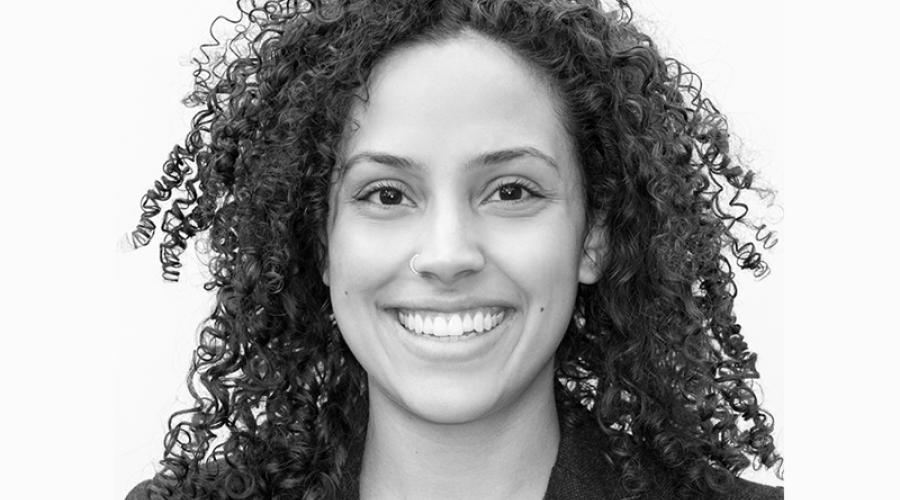
Creating an Inclusive Culture
The tech world has a diversity problem and an ILR alumna is helping solve it with innovative solutions at Pinterest.
Diversity Programs Specialist Abby Maldonado ’14 spoke on the “Why Diversity Can't Be Built in a Day” panel at this year’s South by Southwest.
“We were talking a lot about why diversity is important in the tech industry and a lot of companies agree and are putting efforts towards it,” Maldonado said.
“It’s not something that can be changed quick and fast like fixing a bug. It’s something where you are changing minds, structures and dynamics, which takes time.”
Maldonado also described specific actions Pinterest is taking to improve diversity in technology.
“We set up some public hiring goals for hiring people from underrepresented groups. We have goals of hiring 30 percent of women in engineering roles and eight percent from people in underrepresented ethnic backgrounds in engineering roles, where the industry average is about one to three percent.”
Non-engineer roles at Pinterest do not have a gender problem because more women are hired for those positions, Maldonado explained.
“Our public hiring goals are a big part of our push to hold ourselves publically accountable for reaching goals and diversifying our workforce because a few years ago a lot of companies released their numbers, which is great for seeing where the actual problem was,” Maldonado said.
“A year later, nothing had really changed, so we decided to treat this like any other business problem and put goals against it.”
Maldonado credits her ILR education with preparing her for diversity work at Pinterest.
“Learning how people work together and how people work better is something that I was always drawn to, and I think diversity is a huge element to that,” Maldonado said.
“A lot of what I learned in the ILR School around organizational behavior, staffing processes, people analytics and just basic human resource concepts, while putting a diversity lens on it for the industry that I am in now, has been really critical.”
Maldonado attributes her excitement about human resources to ILR Assistant Professor Beth Livingston of the Department of Human Resource Studies.
“She was the first professor who got me really excited about labor relations and human resources and I actually did research with her during the summer after I took her Introduction to Human Resources class,” Maldonado said. “The research was on women in the workplace, workplace dynamics and gender differences.”
Pinterest has just begun a new diversity program that focuses on candidates from non-traditional technology backgrounds, Maldonado said.
“This is our apprenticeship program for those that do not have a formal computer science degree or a formal technical background, but are looking to break into the tech industry.”
“We are providing an opportunity to experience engineering at Pinterest as an apprentice. They are assigned a mentor and a manager while being given a project to showcase their skills.”
Another program offered by Pinterest engages college freshmen from underrepresented backgrounds in the tech industry that have expressed interest in studying computer science.
“We know that these populations are more likely to drop out of computer science because as they get higher and higher in their classes, there are fewer and fewer people who look like them,” Maldonado said.
Pinterest is not only broadening its pipeline for diverse talent, but is making sure an inclusive culture and environment is created, she said.
“You can do all this work to recruit folks from other backgrounds, but if your culture isn’t welcoming and not inclusive, then they are just going to leave,” Maldonado said.
Diversity is something that brings tremendous benefits for a company, she said.
“These candidates may not have a formal computer science background, but they might have a really interesting background in education, in policy or finance.”
“Having that unique perspective adds a lot of value to our organization.”


